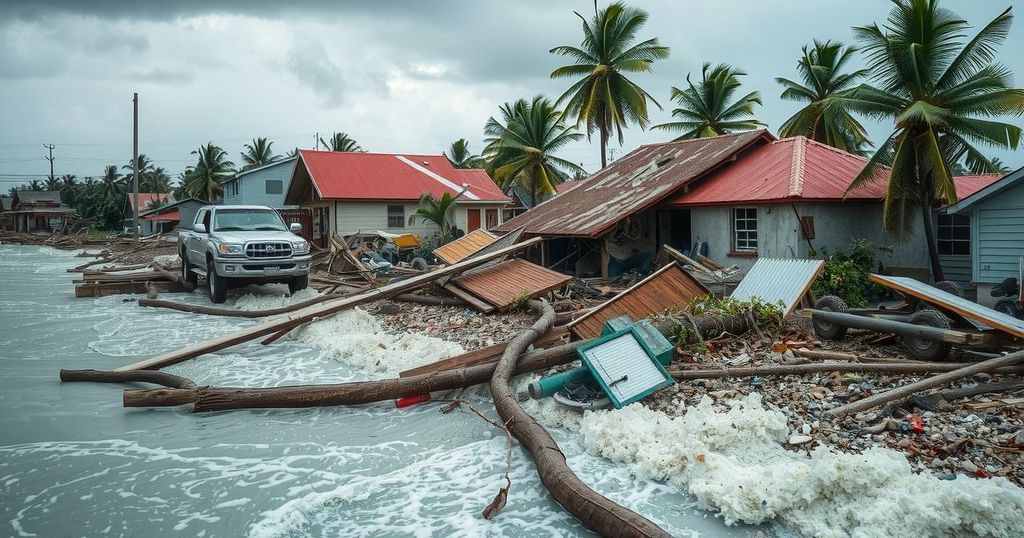Cyclone Chido has killed at least 34 people and injured 43 in Mozambique, impacting 2.5 million individuals. The cyclone caused extensive destruction in Cabo Delgado province, particularly in Mecufi district. Eyewitness accounts describe severe damage to homes, with strong winds and rains affecting multiple provinces. The region is at risk of increased cyclone intensity due to climate change.
Cyclone Chido has wrought devastation across northern Mozambique, resulting in the loss of at least 34 lives and injuring 43 others as it struck three provinces over the weekend. Preliminary assessments by disaster management officials, led by Luisa Meque, indicate that approximately 2.5 million individuals have been affected. The cyclone made landfall in the Mecufi district of Cabo Delgado province, causing extensive damage, with reports noting nearly total destruction of homes in the area.
Eyewitness accounts reveal the severe impact of Cyclone Chido. Canjar Amade recounted his harrowing experience as the storm tore through his residence, stating that the fierce winds stripped his roof away, leading to the collapse of his home the following morning. The situation remains precarious as strong winds and rainfall from the cyclone’s remnants continue to affect various regions, including Niassa and Cabo Delgado. Moreover, the system has impacted neighboring countries such as Malawi and Mayotte and is projected to dissipate near Zimbabwe.
Mozambique continues to grapple with the repercussions of climate change, being one of the most affected nations by this global phenomenon. The country endures recurring floods and tropical cyclones during the rainy season from October to April. Experts warn that a potential La Niña event in early 2025 may exacerbate the frequency and intensity of heavy rains and cyclonic activity in the Indian Ocean, raising concerns for regions already suffering drought conditions.
The article discusses the recent devastation caused by Cyclone Chido in Mozambique, highlighting the fatalities, injuries, and extensive damage to infrastructure. Mozambique is frequently affected by severe weather phenomena, including tropical cyclones and floods, particularly during the rainy season that spans from October to April. The increasing severity of such weather events is attributed to global climate change, raising alarm among climate experts, particularly with predictions of intensified storms due to the anticipated La Niña effect in the near future.
In summary, Cyclone Chido has inflicted severe damage and loss of life in Mozambique, impacting millions and leaving a humanitarian crisis in its wake. The cyclone’s aftermath continues to pose challenges as the region copes with further weather disturbances. The ongoing risks associated with climate change underscore the critical need for comprehensive disaster preparedness and resilient infrastructure to mitigate future occurrences of such catastrophic events.
Original Source: www.voanews.com






